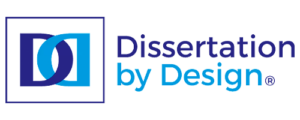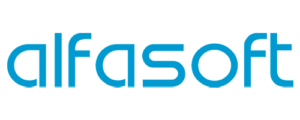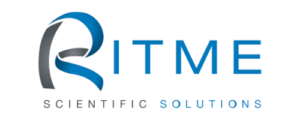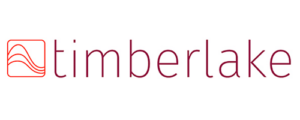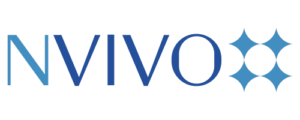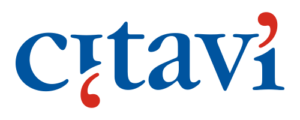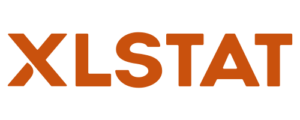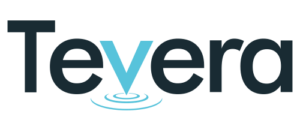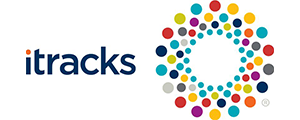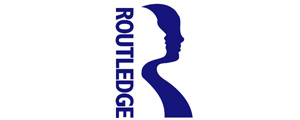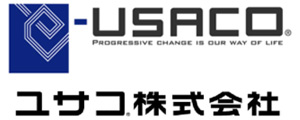Solutions
Data Management Solutions
See All Solutions
Industries
Industries
See All Industries
Products & Services
Products
Services
Contact


Program Director of Ph.D. in Human Capital Management, Professor
My path to academia was different than most. After graduating with a bachelor's degree in the 1970s, I began a career with a regional telephone company in the U.S. During my tenure, I acquired an MBA and MA in economics. I enjoyed the academic context so much that I decided to change my career. In 2004, I took a buy-out from the company and became a full-time student. In 2009, I graduated with a PhD in industrial/organizational psychology from the University of Nebraska. I was hired at Bellevue University and am now a full professor and doctoral program director. I primarily teach multivariate statistics courses. I also oversee several dissertations. I am a self-described statistical software nerd and enjoy working with several products, especially XLSTAT.

Professor in Research, Evaluation, and Measurements Program, University of Florida
Dr. Kakali Bhattacharya is a professor at the University of Florida, housed in the Research, Evaluation, and Measurement Program. Her work has made spaces in interdisciplinary de/colonizing work and qualitative research where creativity and contemplative approaches are legitimized and seen as gateways for cultivating depth, integrity, expansive inquiry, and discovering critical insights. Substantively, she explores transnational issues of race, class, and gender in higher education. She is the 2018 winner of AERA’s Mid-Career Scholar of Color Award and the 2018 winner of AERA’s Mentoring Award from Division G: Social Context of Education. Her co-authored text with Kent Gillen, Power, Race, and Higher Education: A Cross-Cultural Parallel Narrative, won a 2017 Outstanding Publication Award from AERA (SIG 168) and a 2018 Outstanding Book Award from the International Congress of Qualitative Inquiry. She is the 2020 winner of the Mary Frances Early College of Education Distinguished Alumni Award for research from the University of Georgia.

Education Consultant, Divya Bheda Consulting Services: Capacity-Building for Change and Equity
Dr. Bheda is an education consultant with over 15 years of experience leading educator professional development in brick and mortar, and online learning contexts She has led continuous improvement and DEI efforts at UT Austin, National University, and in the WSCUC region. Dr. Bheda is a leader in culturally relevant program evaluation, transformative outcomes assessment, and effective strategic planning for continuous improvement across all departments, disciplines, and divisions in higher education. Her national and international workshops, panels, and keynotes focus on educational best practices to serve students. She imbues social justice in all she offers and champions equity and organizational responsiveness for student success. As a people developer and organizational capacity builder in the higher ed, non-profit, and ed tech spaces, she has facilitated, guided, and mentored many on the path to educational activism and meaningful change. She holds a PhD in Critical and Socio-Cultural Studies in Education, an M.S. in Educational Leadership, and an M.A. in Mass Communication.
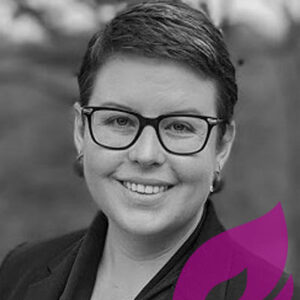
Assistant Professor, Psychology Department, Program Director, MS Applied Psychology, University of Wisconsin-Stout
Dana Linnell Wanzer, PhD is an assistant professor of psychology in evaluation in the psychology department at UW-Stout. She teaches evaluation courses to students in the MS in Applied Psychology program, as well as statistics and intro psychology. Her research focuses on the evaluation profession, including defining evaluation, data visualization practices in evaluation, the role of politics in evaluation, and more. Her research emphasizes open science practices and reproducibility, namely through the Open Science Framework and reproducible data analysis scripts in R. She has been a member of the American Evaluation Association since 2014 and is currently on the Conference Advisory Group and co-Program Chair for the Research on Evaluation Topical Interest Group.

Professor Emeritus, Arizona State University
Johnny Saldaña is Professor Emeritus from Arizona State University’s School of Film, Dance, and Theatre. He is the author of Longitudinal Qualitative Research: Analyzing Change through Time, Fundamentals of Qualitative Research, The Coding Manual for Qualitative Researchers, Thinking Qualitatively: Methods of Mind, Ethnotheatre: Research from Page to Stage, Writing Qualitatively: The Selected Works of Johnny Saldaña, co-author with the late Miles and Huberman for Qualitative Data Analysis: A Methods Sourcebook, and co-author with Matt Omasta for Qualitative Research: Analyzing Life. Saldaña’s qualitative methods works have been cited and referenced in more than 30,000 research studies conducted in over 135 countries

Founder of JD Solomon, Inc.
JD Solomon’s company is focused on solutions for project development, asset management, and facilitation. His technical expertise includes probabilistic analysis, root cause analysis, risk management, and systems engineering. JD's past senior leadership roles include Vice President at two Fortune 500 companies, Town Manager for a unit of local government, and Chairman of a state environmental rulemaking commission. JD is the author of two books, “Facilitating with FINESSE” and “Communicating Reliability, Risk, and Resiliency to Decision Makers: How to Get Your Boss’s Boss to Understand.” JD’s education and technical credentials include a BS In Civil Engineering, an MBA from the University of South Carolina, and a professional certificate in Strategic Decisions and Risk Management from Stanford University. He is a licensed professional engineer in North and South Carolina. JD’s current certifications include Certified Reliability Engineer, Certified Maintenance & Reliability Professional, Six Sigma Black Belt, and Lean Management.

Director of Work-Integrated Learning Research, University of Waikato, New Zealand
Karsten Zegwaard is Director of Work-Integrated Learning Research at the University of Waikato, New Zealand. Zegwaard is Editor-in-Chief for the International Journal of Work-Integrated Learning, co-editor of the Routledge International Handbook of Work-Integrated Learning (3rd edition), president of Work-Integrated Learning NZ (WILNZ), and executive board member of WACE (the international WIL association). Zegwaard has been the recipient of several international awards and has been involved with work-integrated learning since 1998 and was actively involved with the university-wide role out of compulsory WIL within the undergraduate curriculum. Zegwaard has a broad research focus, including trends in WIL practice and research literature, employability enhancement, professional identity development, quality practice, and WIL staff professional development needs.

Professor, Virginia Commonwealth University
Sharon Zumbrunn is a Professor of Educational Psychology and Director of the Motivation in Context Research Lab at Virginia Commonwealth University. As a feelings-and-learning-ologist, she spends a whole lot of time thinking about and studying writing motivation and self-regulation. She has published several research articles on the writing context, writing self-efficacy, writing attitudes, perceptions of feedback, and writing strategies. Importantly, she self-identifies as a struggling writer ... depending on the day.
Harnessing NVivo Classifications for your Research Design – Christina Silver, PhD
Teamwork with NVivo – Laura Lagendyk
Qualitative & Mixed Methods Program Evaluation Using NVivo – Noelle Wyman Roth
Practical Application of Reflexive Thematic Analysis in NVivo – Dr. Ben Meehan
Managing and Analyzing Mixed Methods Data with NVivo – Dr. Pat Bazeley
Using NVivo for Literature Reviews – Dr. Anuja Cabraal
Visual Insights Using NVivo – Dr. Stuart Robertson
A Deep Dive into the Power of @RISK Distribution Fitting - Manuel Carmona
Use Cases of @RISK in Multiple Industries - Jose Orellana
Time Series Forecasting with @RISK 8.5 Industrial – Dr. Steve Van Drew
Pre-Mitigation and Post-Mitigation Model with @RISK's SRA (Schedule Risk Assessment) - Dr. Jose Raul Castro
How to implement a Risk Register into Lumivero's SRA - Jose Emiliano Garcia
How to Use XLSTAT for Statistical Analysis - Manuel Carmona
Dive into the World of Sensory Data Analysis with XLSTAT - Thalia Anagnostou
Lumivero Early Career Researcher Grant Winner: Parents’ Barriers and Facilitators to Building Better Days
Disruption and the Rise of AI: Exploring the Role of Technology in Qualitative Research
Lumivero Early Career Researcher Grant Winner: Parents’ Barriers and Facilitators to Building Better Days
Qualitative Synthesis and Its Application to a Review of Lethal Means Counseling Interventions
Using NVivo and Qualitative Research Methodologies to Write a Scoping Review about Project ECHO for Cancer Care
Using NVivo Software In Analyzing Qualitative, Quantitative, And Social Media Data
Literature Review With NVivo-How To Streamline Your Literature Review Process with NVivo
Game Changer – Systematic Literature Review Analysis using NVivo
Flexibility & Iteration: Exploring the Potential of Large Language Models in Developing and Refining Interview Protocols
Financial Evaluation of Changing Business Scenarios with @RISK: A Case Study
Leading Practices in Defining Risk Tolerance
Evaluating Optimal Commodity Hedges using @RISK
Probabilistic Time Series Forecasting of Refined Petroleum Product Demand for Optimal Resource Allocation in an Integrated Oil Value Chain
Building Better Oil & Gas Companies Through Enhancing the Finance Function with a Probabilistic Approach Using @RISK
A Simple Process to Analyze Free Sorting Data Given Incomplete Block Designs
Variants of the FIMIX-PLS Clustering Method in the Context of Structural Equation Models
Longitudinal Education and Career Outcomes of a Cancer Research Training Program for Underrepresented Students: The Meharry-Vanderbilt-Tennessee State University Cancer Partnership
ChatGPT in Statistics Education: A Learning Activity to Foster Statistical Thinking
The Utilization of Sonia as a Tool to Increase Collaboration, Efficiency, and to Monitor Compliance in a Higher Education School of Education Setting
Tevera: Student Success and Program Improvement, All-in-One!
Digital Literacy Digital Divide in Youth Internship and Workforce
Streamlining the Signing of Forms: Using the Invite External Reviewers or Respondents Tool
Playing Matchmaker: Optimizing Your Student Placement Management Software
An Institutional Approach to Rolling Out Sonia: A University of Canterbury Case Study
ChatGPT for Automated Writing Evaluation in Scholarly Writing Instruction
How Productive Scholars Write
